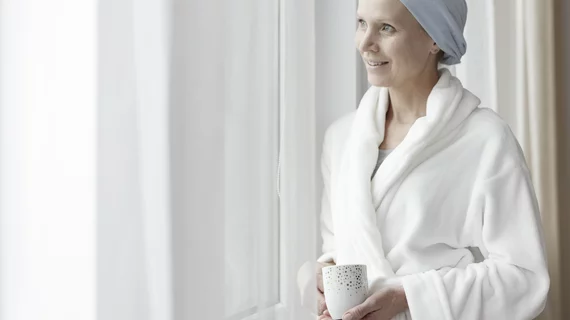RSNA 2018: Cryoablation shows early effectiveness for low-risk breast cancer treatment
Cryoablation—commonly called cryotherapy—demonstrated early effectiveness in treating women with low-risk breast cancer, reported researchers during a Nov. 29 session at RSNA’s 2018 Annual Meeting.
The authors, led by Kenneth R. Tomkovich, MD, with CentraState Medical Center in Freehold, New Jersey, found one case of cancer recurrence out of 180 patients treated over the four-year study period, according to a prepared statement from RSNA.
"If the positive preliminary findings are maintained as the patients enrolled in the study continue to be monitored, that will serve as a strong indication of the promise of cryotherapy as an alternative treatment for a specific group of breast cancer patients," Tomkovich said in the statement.
Beginning in 2014, Tomkovich and colleagues from 18 centers in the U.S. began performing cryoablation on women 60 years and older with biopsy-proven, low-risk breast cancer. As part of the ongoing Ice 3 Trial, patients receive the treatment, then subsequently monitored with mammography at six and 12 months, and annually for five years.
Preliminary results have been “very promising,” according to the release, with no serious adverse events reported. One patient experienced recurrence, notching the procedure a 99.4 percent success rate. As of now, Tomkovich et al. have three-year follow-up data on 20 patients and two-year data on more than 75 others. Final results will be published when five-year data on all participants is available.
If their results hold up, the authors think it could alter treatment plans for breast cancer patients.
"If it's proven that cryoablation works, then some women might be more inclined to opt for it over surgery," Tomkovich said.

